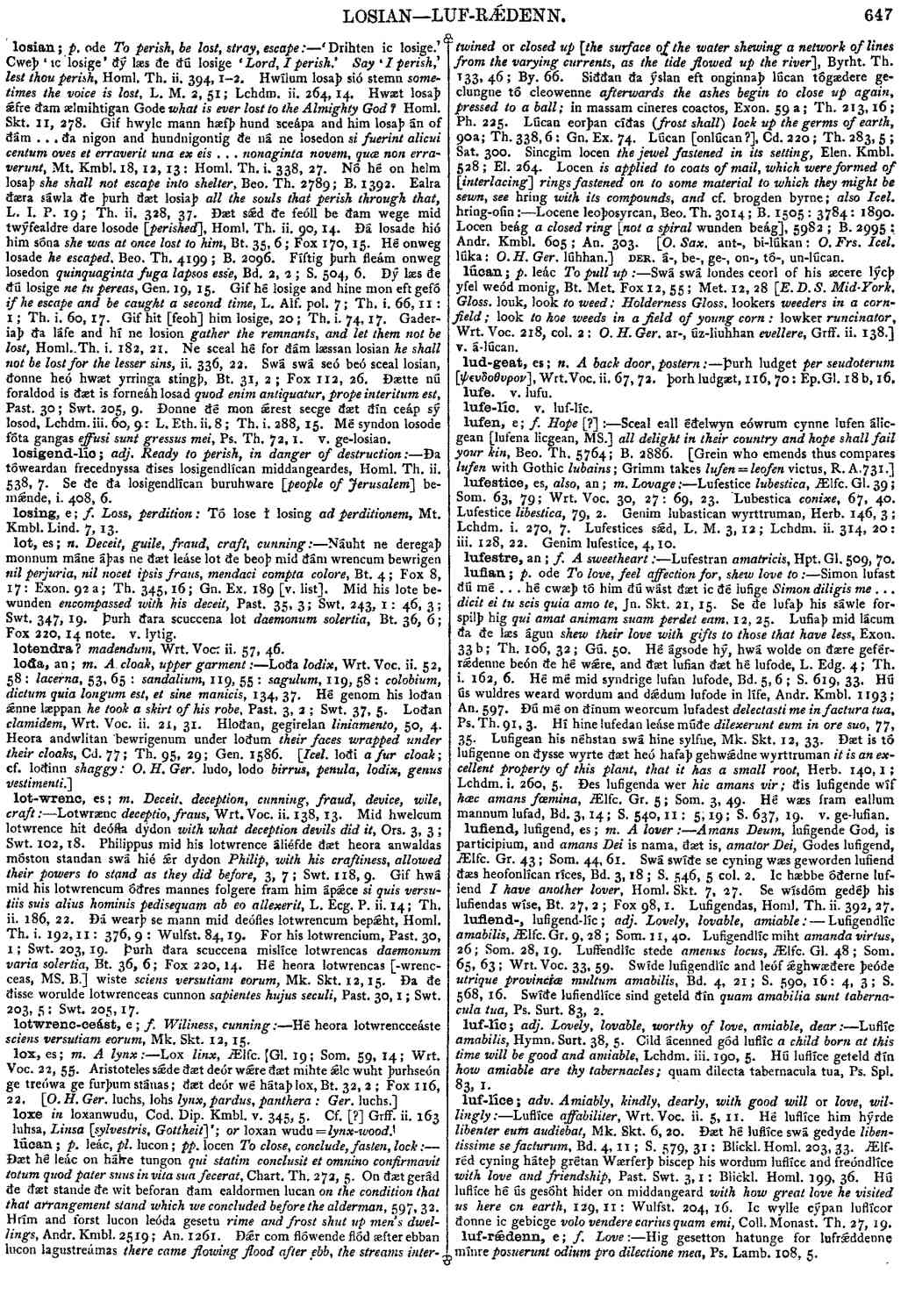lúcan
- verb [ strong ]
-
Ðæt hé leác on hálre tungon
qui statim conclusit et omnino confirmavit totum quod pater suus in vita sua fecerat,
- Chart. Th. 272, 5 .
-
On ðæt gerád ðe ðæt stande ðe wit beforan ðam ealdormen lucan
on the condition that that arrangement stand which we concluded before the alderman,
- 597, 32 .
-
Hrím and forst lucon leóda gesetu
rime and frost shut up men's dwellings,
- Andr. Kmbl. 2519 ;
- An. 1261 .
-
Ðǽr com flówende flód æfter ebban lucon lagustreámas
there came flowing flood after ebb, the streams intertwined or closed up [the surface of the water shewing a network of lines from the varying currents, as the tide flowed up the river],
- Byrht. Th. 133, 46; By. 66.
-
Siððan ða ýslan eft onginnaþ lúcan tógædere geclungne tó cleowenne
afterwards the ashes begin to close up again, pressed to a ball;
in massam cineres coactos,
- Exon. 59 a ;
- Th. 213, 16 ;
- Ph. 225 .
-
Lúcan eorþan cíðas
(frost shall) lock up the germs of earth,
- 90 a ;
- Th. 338, 6 :
- Gn. Ex. 74 .
-
Lúcan [onlúcan?],
- Cd. 220 ;
- Th. 283, 5 ;
- Sat. 300 .
-
Sincgim locen
the jewel fastened in its setting,
- Elen. Kmbl. 528 ;
- El. 264 .
-
Locen
is applied to coats of mail, which were formed of [interlacing] rings fastened on to some material to which they might be sewn, see hring with its compounds, and cf. brogden byrne; also Icel. hring-ofin -
Locene leoþosyrcan,
- Beo. Th. 3014 ;
- B. 1505 :
- 3784 :
- 1890 .
-
Locen beág
a closed ring [not a spiral wunden beág],
- 5982 ;
- B. 2995 :
- Andr. Kmbl. 605 ;
- An. 303 .
Bosworth, Joseph. “lúcan.” In An Anglo-Saxon Dictionary Online, edited by Thomas Northcote Toller, Christ Sean, and Ondřej Tichy. Prague: Faculty of Arts, Charles University, 2014. https://bosworthtoller.com/21860.
Checked: 1